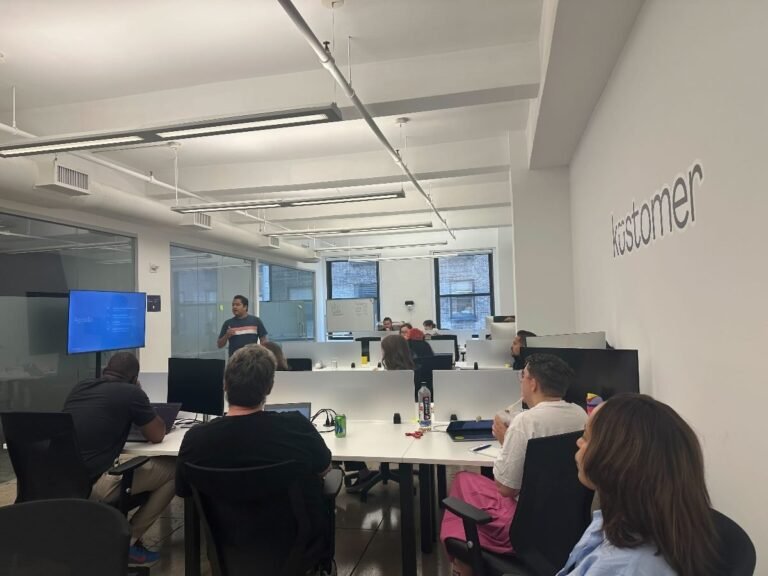The national conversation on return-to-office policies just got hotter — and Southern Business Review is here to help Southern leaders make sense of the shift.
Vlad Tenev, CEO of the $100 billion fintech giant Robinhood, has announced a major change: all C-suite executives must now be in the office five days a week. Managers will be required to commute four days, while most employees will work in person three days weekly.
This decision marks a sharp pivot from Tenev’s 2022 declaration that Robinhood would be a fully remote company, a move he now admits was a mistake. “I regretted it pretty much immediately,” Tenev said on the Cheeky Pint podcast, explaining that leadership must “feel the same pain” as their teams when adjusting to new workplace realities.
The Bigger Picture: Return-to-Office Trends in Corporate America
Robinhood isn’t alone. Tech giants like Microsoft and Amazon are enforcing stricter RTO measures, with Amazon cracking down on “coffee badging” — when employees swipe in just to grab a coffee before heading home.
Some companies are using badge data and even software to track employee presence, while others — particularly smaller, agile firms — are using remote work flexibility as a competitive advantage to attract top talent.
According to recent studies, 70% of hybrid or remote employees would consider changing jobs if forced back full-time without compensation adjustments. In a competitive Southern job market, where talent retention is critical, such data matters.
Leadership Lessons for Southern Executives
For leaders across the South — from Atlanta’s fintech corridor to Dallas’s corporate hubs — the takeaway is clear: workplace policy is now a strategic business decision.
Tenev’s shift highlights that executive presence in the office can set a cultural tone, but it must be balanced against employee expectations for flexibility. Leaders who fail to find that balance risk losing their best talent to more adaptable competitors.
At Southern Business Review, we track these national corporate shifts and translate them into actionable insights for Southern decision-makers. Whether you’re running a growing family-owned business in Birmingham or leading a Fortune 500 branch in Charlotte, understanding RTO trends will help you stay ahead.
The Future of Work in the South
The South’s economic growth depends on attracting and keeping skilled professionals. As national companies like Robinhood, Amazon, and Microsoft double down on in-office policies, Southern companies have a unique opportunity: use flexibility as a selling point — or follow the strict in-office model to build a more centralized company culture.
Either way, your leadership strategy will shape not just your business, but the entire regional economy.
Stay informed. Stay competitive.
For more in-depth business analysis and leadership strategies tailored to the Southern market, subscribe to Southern Business Review, your trusted source for Southern business news, leadership insights, and workplace trends.






